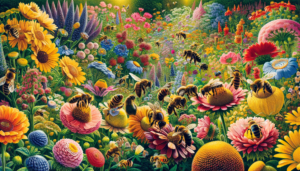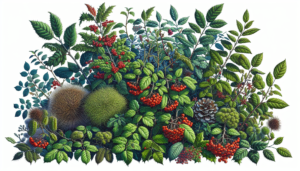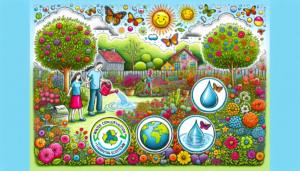Bees play a vital role in pollinating the food we eat, but their numbers are declining. Want to help save bees? This guide offers practical steps you can take right in your garden.
Key Points
- Bees are essential pollinators, contributing significantly to the global food supply and economy, with a market value between $235 billion and $557 billion annually.
- Bee populations face serious threats from habitat loss, pesticide use, and climate change, which collectively harm their ability to pollinate and threaten biodiversity and food security.
- Creating bee-friendly gardens, supporting local beekeepers, avoiding harmful chemicals, and participating in rewilding projects are effective strategies for conserving bee populations and promoting ecosystem health.
Understanding the Importance of Bees
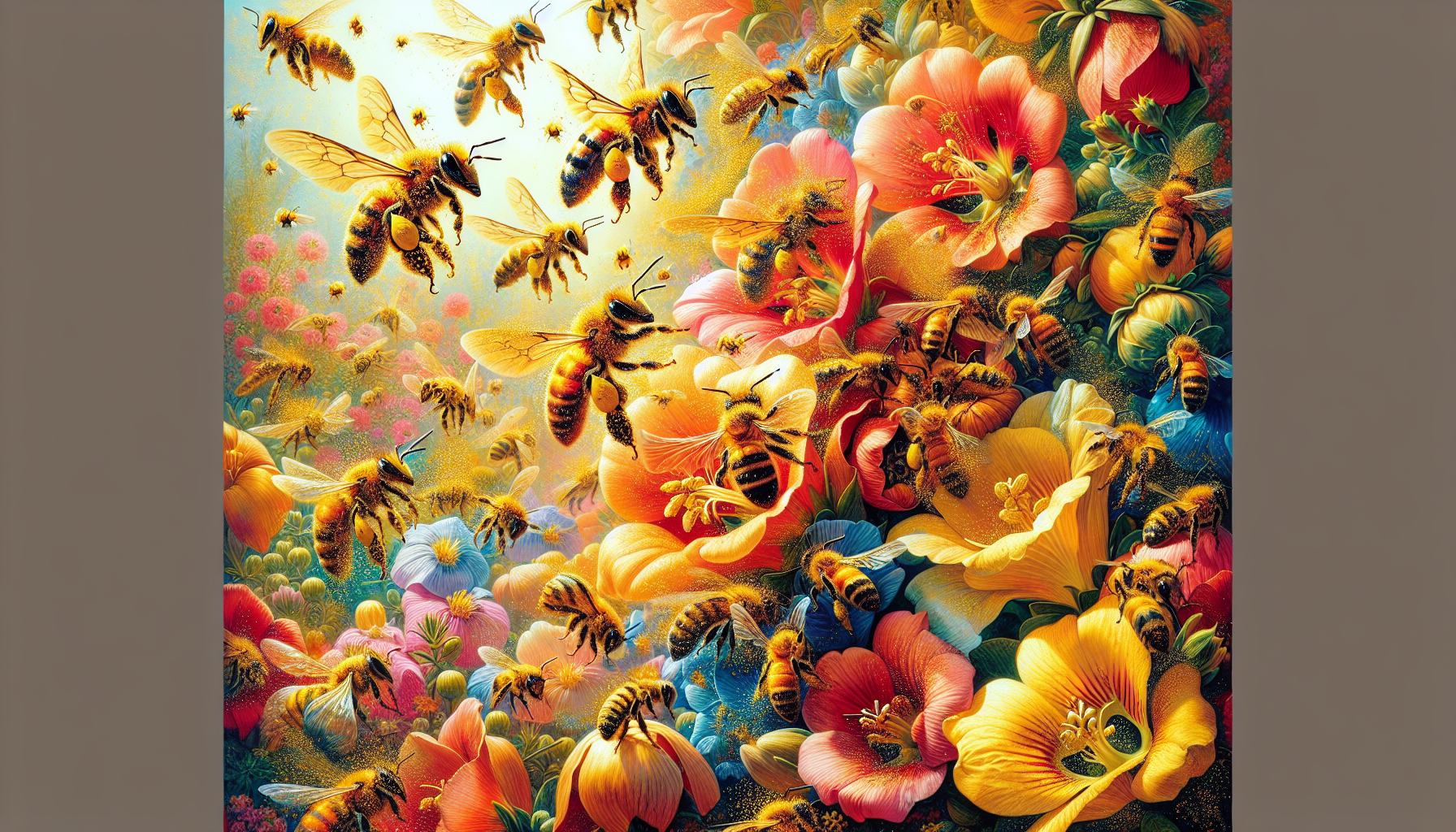
Bees are not just any insects; they are critical pollinators responsible for about one-third of the food we eat. Their role in human food production cannot be overstated. Bees pollinate various crops, including fruits, nuts, and vegetables, which supply up to 90% of the world’s nutrition. Without bees, our diets would be considerably less nutritious and diverse.
Different bee species have unique characteristics that make them effective pollinators for specific plants. Honey bees, for instance, perform 80% of all pollination worldwide, while native bees enhance crop yields even on farms that deploy honey bees. This impressive pollinating ability is due to their special features, such as branched hairs and pollen baskets. These adaptations enable bees to transfer pollen efficiently, ensuring that plants can fruit, set seed, and breed, providing food and habitat for other creatures.
The economic value of pollinators, including bees, is staggering, with a global market value between $235 billion and $557 billion annually. More than 90% of the leading global crop types are visited by bees, making them indispensable for both agriculture and wild plant ecosystems. Appreciating their significance would underline the urgency of safeguarding these essential pollinators.
The Threats Facing Bee Populations
In spite of their significance, various human-induced threats are causing a decline in bee populations. Habitat loss, fragmentation, and destruction of natural habitats like grasslands are major culprits. As agricultural intensification leads to the decline of wildflower meadows, bees lose their prime pollinator habitats.
Pesticide use is another significant threat to bees. Synthetic pesticides, fertilizers, and herbicides, particularly neonicotinoids, are harmful to bees. These chemicals can cause direct harm to bees and reduce the availability of nectar-rich flowers, leading to a nutrition deficit and fewer bees. The use of such chemicals in industrial agriculture exacerbates the problem.
Climate change further complicates the situation by impacting bee habitats and food sources. As temperatures rise and weather patterns change, bees may find it harder to forage and survive. Combined, these factors contribute to the decline in bee populations, posing a serious threat to global food security and biodiversity.
How Honey Bees Differ from Wild Bees
Honey bees and wild bees both play crucial roles in pollination, but they have distinct differences. Here are some key differences between honey bees and wild bees:
- Honey bees are managed by beekeepers and live in large colonies with a well-organized hierarchy, including a queen, worker bees, and drones.
- Wild bees, on the other hand, live in a variety of habitats, including underground burrows, hollow stems, and tree cavities. They do not have a hierarchical structure like honey bees.
- The honey bee is renowned for its ability to produce honey, which has culinary and medicinal uses.
In contrast, wild bees, including solitary bees, bumble bees, and the wild bee, often have unique body sizes, shapes, and behaviors that make them ideal partners for specific flowers. Native bees have evolved alongside native plants, making them specialists in pollinating certain species. This specialisation ensures better pollen transfer and enhances the quality of the crops they pollinate.
While honey bees were introduced to America by European settlers in the early 17th century, native wild bees have always been part of the local ecosystem. Unfortunately, the focus on honey bees has sometimes overshadowed the importance of native bees. Acknowledging the importance of both honey bees and wild bees enhances our support for pollinator conservation strategies.
Creating a Bee-Friendly Garden
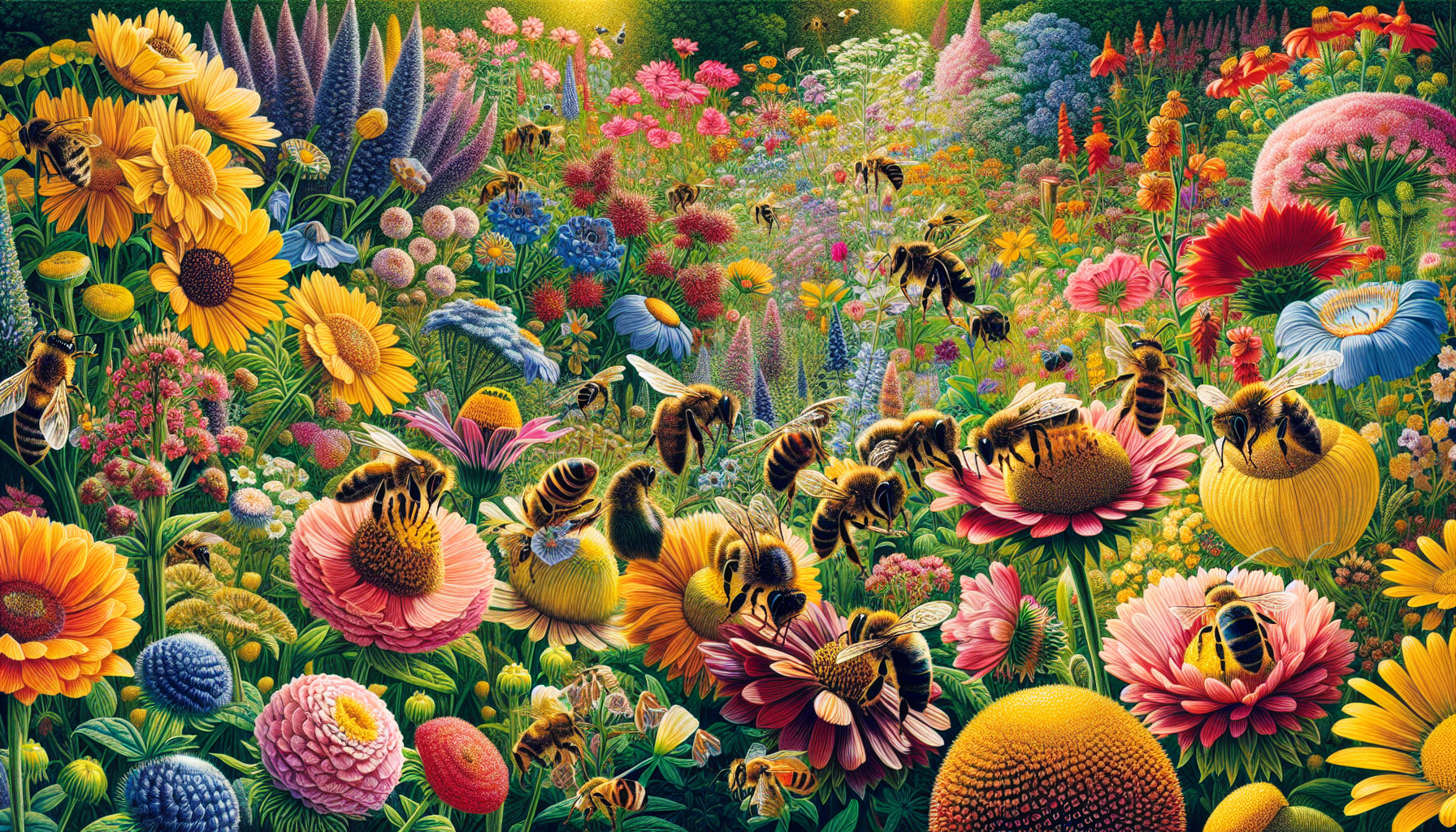
Creating a bee-friendly garden is one of the most effective ways to support bee populations. Start by planting nectar-rich flowers, which provide bees with energy through sugar, and pollen, which supplies protein and oils. Flowers like angelica, cornflowers, and cowslips are excellent choices to attract bees.
Allowing parts of your garden to grow wild can create nesting and feeding sites for bees. Longer grass, hedgerows, and dead wood are ideal for insect nests and hibernation spots. Even small spaces like patios can support bees by growing flowering plants, providing areas where bees forage.
Mowing your lawn less frequently can also promote the growth of nectar-rich plants. Implementing these minor adjustments can help you develop a bee garden that serves as a year-round source of food, water, and shelter for pollinators, thereby enhancing their survival and your garden’s health.
Building Bee Hotels for Solitary Bees
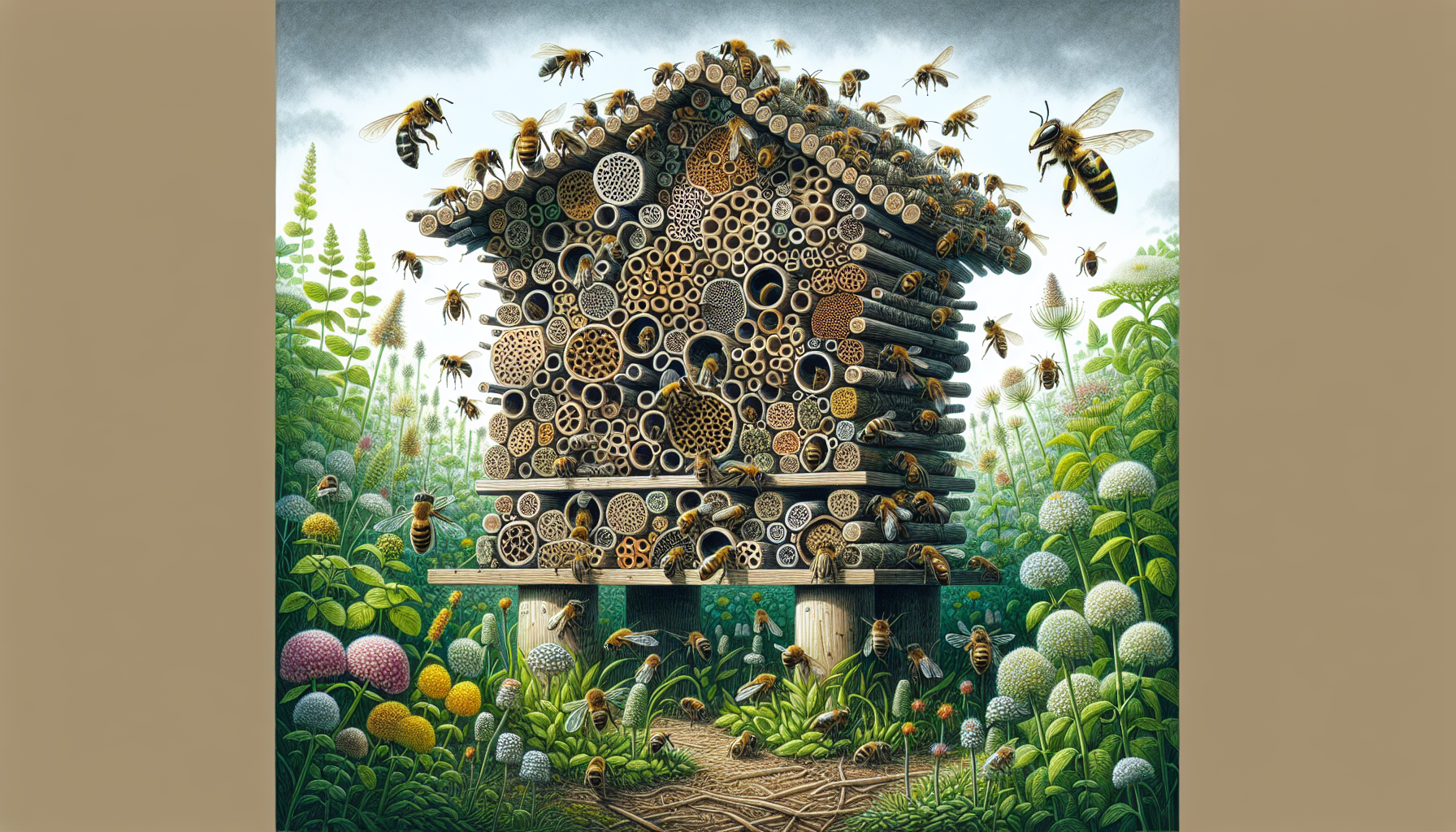
Solitary bees, unlike honey bees, do not live in large colonies but rather form a single bee colony. Building bee hotels can provide much-needed shelter for these important pollinators. You can create a bee hotel using hollow stems like bamboo, twigs, and string. Recycled materials such as scrap wood, plastic bottles, and old garden canes can also be used.
A combination of materials like bamboo, reeds, and cardboard tubes can make the hotel more appealing to different bee species. Hollow stems of various diameters can cater to multiple solitary bee species. Using untreated wood for the hotel structure is safer for bees.
Place your bee hotel in a sunny spot at least a meter above the ground to attract solitary bees and keep it safe from predators. Offering a safe refuge for solitary bees aids in pollinator preservation and increases your garden’s biodiversity.
Supporting Local Beekeepers
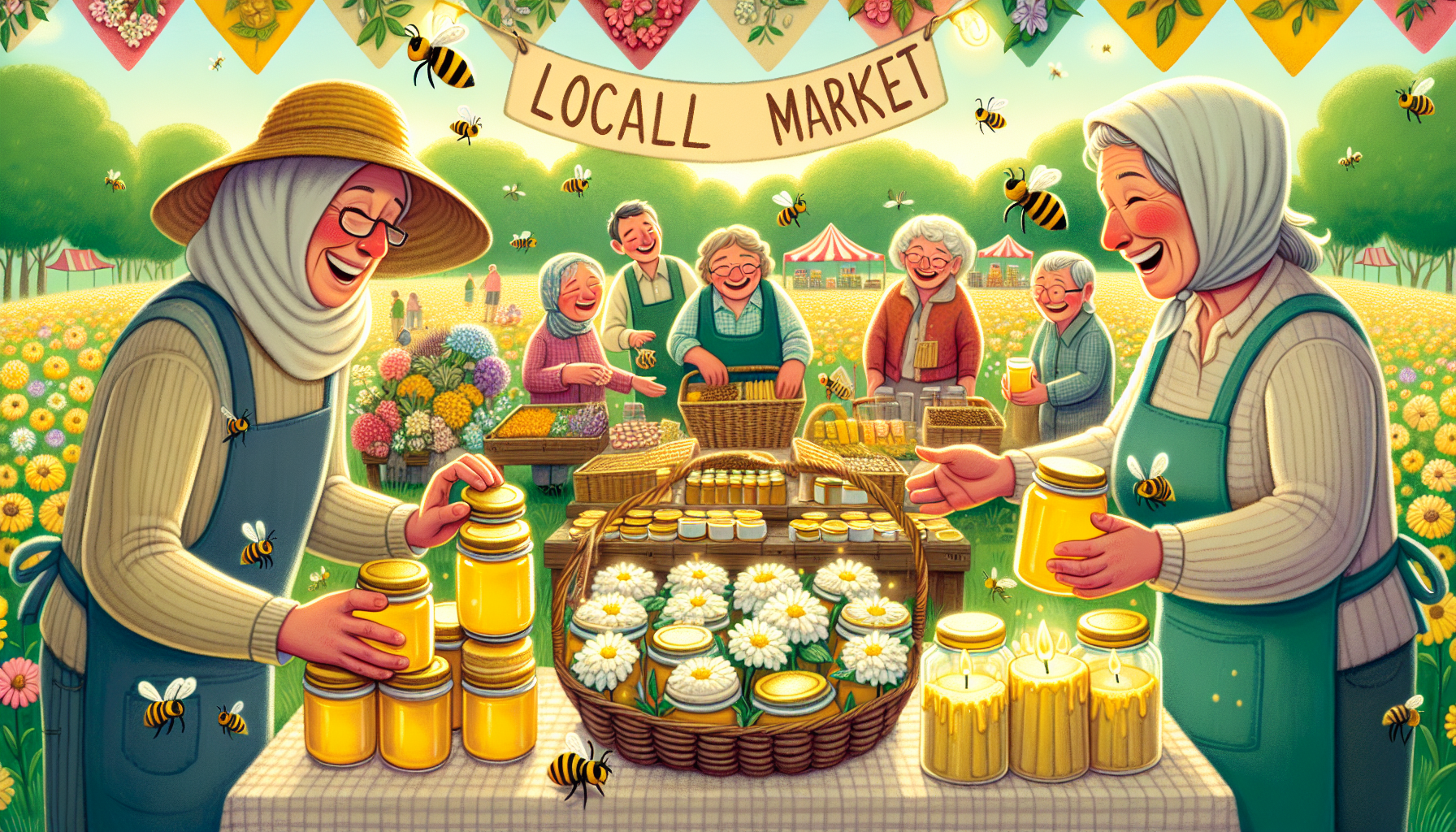
Supporting local beekeepers is another effective way to help bee populations. Here are some ways you can support them:
- Purchase locally-made honey and beeswax products
- Attend local beekeeping events and workshops
- Volunteer at a local beekeeping organization
- Spread awareness about the importance of bees and the work of beekeepers
Purchasing locally-made honey and beeswax products supports beekeepers’ income and helps fund future beehives. This support is crucial for maintaining healthy bee hives and ensuring the continued availability of bees for pollination.
Contributing to local beekeeping organisations directly aids in the nurturing and upkeep of beehives. Purchasing local honey and beeswax products not only lets you enjoy premium, natural items, but also promotes bee conservation and local ecosystem sustainability.
Avoiding Harmful Chemicals
Reducing pesticide use is critical for protecting bee populations. Some alternatives to synthetic pesticides, fertilizers, and herbicides that are harmful to bees include:
- Organic pesticides and fertilizers
- Integrated Pest Management (IPM) techniques
- Biological controls, such as beneficial insects and nematodes
- Crop rotation and companion planting
Opting for these organic and targeted alternatives can significantly reduce the risk to bees.
If pesticide use is necessary, here are some tips to minimise harm to bees:
- Choose formulations like solutions and emulsifiable concentrates that dry quickly and don’t leave residues.
- Apply pesticides in the evening when bees are not actively foraging.
- Avoid applying pesticides directly to the soil, as this can harm bees.
Aerial spraying of pesticides poses a high risk to bees due to drift. Using granular formulations can help mitigate this risk. Diminishing pesticide use and exploring pollinator-friendly substitutes aids in fostering a healthier habitat for bees and other pollinators.
Organic Farming and Its Benefits
Organic farming is essential for bee conservation as it helps stabilise human food production, preserve wild habitats, and protect bee populations. This farming practice prohibits the use of synthetic pesticides, including neonicotinoids, which are linked to bee population declines.
Organic farms often support pollinators in the following ways:
- Planting insectaries that provide habitat and season-long food sources for pollinators
- Using crop rotation to provide a diversity of floral food sources, reducing the risk of malnutrition for pollinators
- Fostering biodiversity and improving natural resources
By implementing these practices, organic farming supports more pollinators compared to conventional farming.
Transitioning to ecological farming is a vital policy trend that has the potential to:
- Stabilize human food production
- Safeguard bees
- Support organic farming practices
- Bolster a healthier environment
- Guarantee the sustainability of our food systems.
Rewilding Projects and Their Impact
Rewilding projects are vital for restoring wildflower meadows and habitats, which are prime habitats for bees. The Greater Bristol Pollinator Strategy, for example, aims to conserve pollinators in the Greater Bristol urban area through a collaborative approach.
Projects like the Jordans Farm Partnership and Stirley Community Farm focus on bringing back wildlife to farming and encourage bees and other pollinators. These initiatives support the reproduction of native wildflowers and wild plants, further restoring vital habitats.
The Shrill Carder Bee, one of the species that wild bee face extinction, is endangered due to the disappearance of wildflower-rich habitats it depends on. Backing rewilding initiatives bolsters the survival chances of such species and enhances the overall health of the ecosystem.
Simple Actions You Can Take Today
Taking simple actions can make a significant difference in bee conservation. Creating a bee-friendly garden by planting nectar-rich flowers and native wildflowers is a great start. Supporting local beekeepers by purchasing locally-made honey and beeswax products also helps.
Building bee hotels for solitary bees and joining campaigns for policy changes are other effective actions. By taking these steps, you contribute to the conservation of bees and the health of your local ecosystem, ultimately helping to save the bees.
Summary
In summary, bees are essential for pollination, food production, and biodiversity. However, they face numerous threats, including habitat loss, pesticide use, and climate change. By understanding their importance and taking practical steps to support them, we can make a significant impact on their conservation.
Creating bee-friendly gardens, supporting local beekeepers, avoiding harmful chemicals, and advocating for organic farming and rewilding projects are all ways we can help. Together, we can ensure that these vital pollinators thrive, securing the future of our food supply and natural ecosystems.
Frequently Asked Questions
Why are bees important for food production?
Bees are important for food production because they pollinate crops like fruits, nuts, and vegetables, which supply up to 90% of the world’s nutrition.
What are the main threats to bee populations?
The main threats to bee populations are habitat loss, pesticide use, climate change, and industrial agriculture. These factors have a serious impact on bee populations.
How do honey bees differ from wild bees?
Honey bees live in large colonies and produce honey, while wild bees have unique body sizes and behaviours that make them ideal for pollinating specific plants. They also do not produce honey.
How can I create a bee-friendly garden?
To create a bee-friendly garden, plant nectar-rich flowers, native wildflowers, and allow parts of your garden to grow wild. This will help attract and support bees in your garden.
Why should I support local beekeepers?
You should support local beekeepers because purchasing their products helps maintain healthy bee hives and supports bee conservation efforts. This is crucial for the well-being of our environment and agriculture.

